As the JKM library's highly respected resident film critic (my boss asked if I'd review one of the movies on the shelves) I’ll admit that this review took longer than I thought and that is mainly due to the truly unique inventory that the library has to offer. For example, there are dozens of films in the collection that I know for a fact aren’t on streaming, such as the 1999 Kevin Smith film Dogma, or the 1992 Rick Seback documentary simply titled Downtown Pittsburgh. This very exciting collection of films left me eager to review the movies that I hadn't heard of before, and that's exactly what I hope to do with this series.
The film I chose was 1984’s Teachers– a movie I've never heard of before despite its totally incredible cast, featuring karate kids and McFly's alike with the duo of Ralph Macchio and Crispin Glover as trouble-making students who sneak out of school and hot-wire cars.

This fun casting choice (and the DVD cover of an apple with a stem lit like a stick of dynamite) would make you think that this would be a wacky comedy where the school staff (Nick Nolte, Judd Hirsch, and Morgan Freeman) struggle to teach a group of trouble-making students, and end up learning new unorthodox ways to teach the students. Instead of the comedy basics I expected from a 1980s movie called Teachers, I was surprised to see that the movie focused on very real issues of gun violence, budget cuts, and the neglect of children in a massive public school. It goes without saying that these are real problems, and if you have talked to a teacher about difficulties in teaching, or even just had the experience of attending an underfunded school, I feel you will take something away from this movie.
While the film tackles very dark subject matter, it is able to find ways to add humor undermining the real world issues it portrays–something I feel many movies often struggle with. In short, Teachers may not be laugh out loud funny, but it still gives the audience funny moments while exploring what it means to work in a difficult profession.
Rating: 8 cartoonishly dark red apples out of 10
Ethan Newton is currently a freshman at Chatham University (and JKM Library student employee) who has decided that instead of choosing a major he will start smaller and choose different films from the library to review. Ethan urges cool Chatham students to come up to him to discuss old movies and 70s comic books.


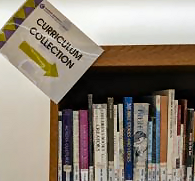
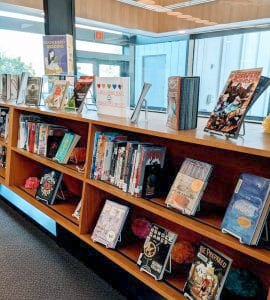


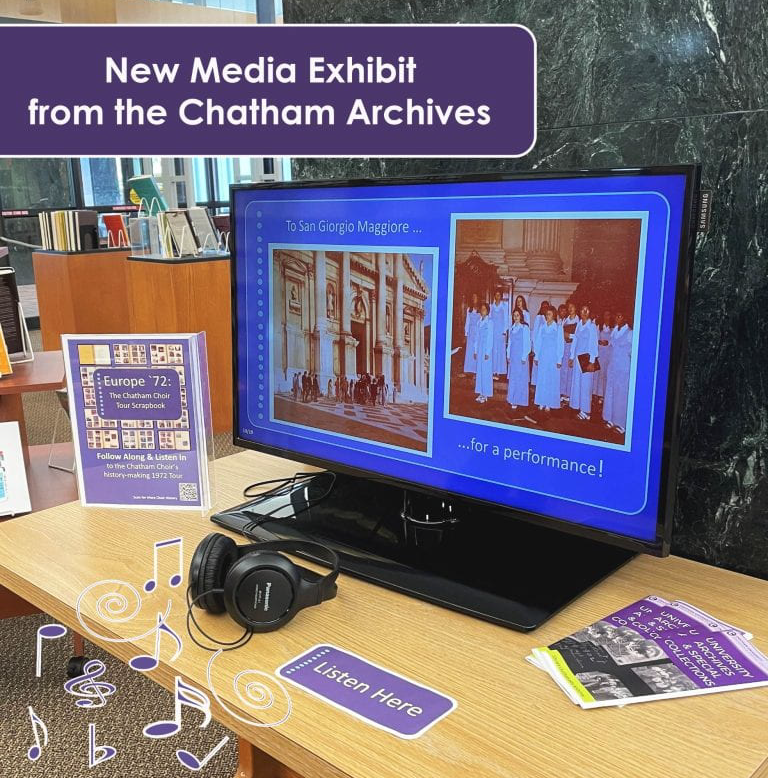
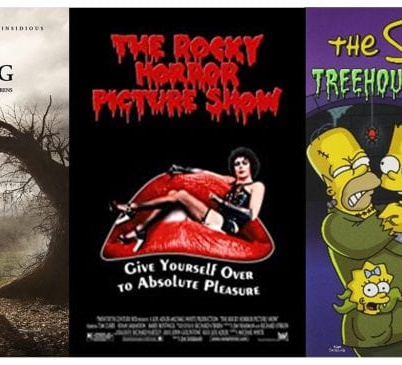 October 2022
October 2022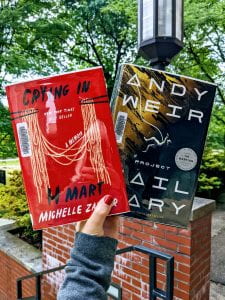
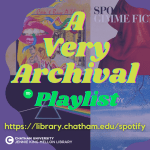 August, 2022
August, 2022
With the recent passing of one of my idols, Bill Moyers, I am compelled to share my connection, albeit via electronic means only, to someone who was part of my daily existence during one of the most meaningful periods in my life.
As an art student in NYC in the 1980s-1990s, I had the priviledge of meeting a few famous people: Jean-Michel Basquiat and Keith Haring, to name two; with the latter being a lecturer-in-residence at my school (Pratt Institute) as I was tasked with ‘handling his slide carousels’ (ask your parents, or grandparents).
But the highlight of my time as a graduate student supervisor in the Media Library was circulating, viewing, and analyzing a multi-series program on VHS tape (with the master on Beta - ask your great-grandparents) entitled “Joseph Campbell and the power of myth”, a set of tapes that we would regularly have to review and re-master in order to manage their playback quality.
The buzz in the academic art world (and others I suppose) was to “read Joseph Campbell,” but as a visual artist, me and many of my classmates, including little Bobby Mapplethorpe (he grew about a foot right after he dropped-out and became famous with his whips and such) lined up, patiently awaiting the rewinding of a tape so we could watch the magic interactions between Joseph Campbell and Bill Moyers, sharing insights, questions, and interpretations between the myth and reality of idols, icons, gods and goddesses.
As an anti-social art-punk trying to learn how to conduct an adult conversation - let alone a librarian interview - these guys -these 2 guys- were full frontal in my daily analog memory glands of how words talk mouth use to… (sic)
Not only a gateway to the fabulous writings of Joseph Campbell, such as The Hero with a Thousand Faces among others, the videos were thought provoking and packed with enough subject matter to last any art student multiple semesters of imagery.
Beyond the melancholy I can see Bill and Joseph flowing alongside in the the Golden Bough, perhaps with Keith, Jean-Michel and Robert, but back on Earth we can celebrate a great series of moments recorded on film, video, or copied to DVD (as allowed by Section 110 (1) of the Copyright Act of 1976).
I'm sure one could easily locate a stream or YouTube clip, but below are links to the library holdings of the video series as as well as books authored by these two beautiful entities.
Joseph Campbell and the power of myth [videorecording] : with Bill Moyers / a production of Apostrophe S Productions, Inc., in association with Alvin H. Perlmutter, Inc., Public Affairs Television, Inc.
Media Shelves - 291.13 C15P (6 DVDs)
Other works in our library by-or-about:
Bill Moyers
https://chatham.bywatersolutions.com/cgi-bin/koha/opac-search.pl?idx=&q=an%3A35883&sort_by=popularity_dsc&count=20
Joseph Campbell
https://chatham.bywatersolutions.com/cgi-bin/koha/opac-search.pl?idx=&q=an%3A68570&sort_by=popularity_dsc&count=20
Commenting on blog posts requires an account.
Login is required to interact with this comment. Please and try again.
If you do not have an account, Register Now.